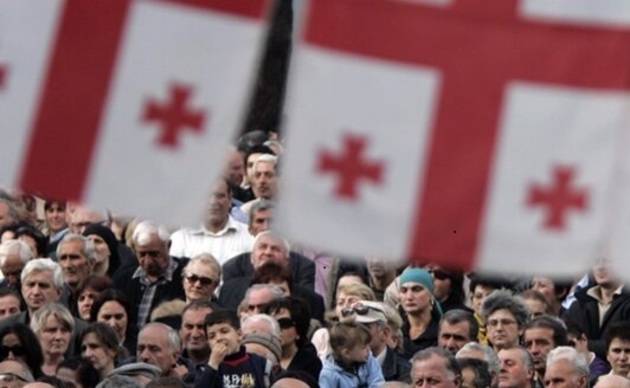In parallel with the opening of the spring parliamentary session in Georgia, opposition leaders announced the start of a new phase in the struggle to change election laws. The protest planned for for February 4 was held today (due to the tragedy in Bagdati, where women and children died). After the last autumn events, when special forces of the Ministry of Internal Affairs several times thwarted an attempt to completely block the legislative building, the ruling Georgian Dream party and the "united opposition" held several rounds of negotiations with the mediation of the EU ambassador and a number of diplomats from Western countries.
Perhaps, experienced U.S. Ambassador Kelly Degnan, who recently handed her credentials to Prime Minister Giorgi Gakharia, will also join in this process in the near future. Both sides of the protracted confrontation put high hopes on her. But no matter how qualified Ms. Degnan and other Western participants in the process are, they most likely will not be able to resolve the fundamental contradiction between the ruling party and the opposition, which has arisen after the failure of the promised constitutional reform. That is the transition to a proportional electoral system (on a party list basis) instead of the current mixed proportional and majoritarian system since this autumn, when decisive parliamentary elections are due to take place in the country.
It is important to take into account that the opposition has a moral advantage, which has become a political resource, since the Georgian Dream was unable to clearly explain why the reform initiated last summer by their leader, billionaire Bidzina Ivanishvili, did not gain the required number of votes of the ruling party’s lawmakers during voting on constitutional amendments.
The constant focus of public attention on the political dishonesty of the ruling party and its leaders, the organization of 'corridors of shame', when students supporting the opposition reproach the Georgian Dream MPs for "shamelessly deceiving the nation" in front of TV cameras, gives the opposition an election bonus. Especially the three most influential parties: Mikheil Saakashvili's United National Movement (UNM), Davit Bakradze's European Georgia (EG) and Shalva Natelashvili's Labor Party (GLP).
At the same time, opposition leaders constantly appeal to their Western partners, pointing to the futility of the dialogue with Georgian Dream because of the mistrust that arose after the 'deception of the century'.
The opposition can hols various actions, including 'corridors of shame', try to block the parliament and block the streets all the time, and the authorities, being ashamed of the fact that they could not or did not want to keep their reform promise, are unlikely to dare to use force fully or arrest leaders of the protest movement. Indeed, in the current conditions this is fraught with serious western sanctions: the number of congressmen and senators, who have sent "open letters" to the Georgian PM sharply criticizing his government’s domestic and foreign policies, is growing.
On the other hand, the 'united opposition' obviously lacks the resources to organize a 'Rose revolution 2' on Rustaveli Avenue, as ex-president Saakashvili recently said, promising supporters to return to his ancestral homeland from Ukraine on the crest of this 'revolution'.
As for the sluggish negotiations on a possible compromise in the form of the German election model with the priority of proportional voting, or the formula with 100 MPs elected on the basis of the party-list system, 50 elected in single-mandate constituencies (instead of the current 73 + 77), they will most likely remain the background, on which the country will approach the next fateful election, scheduled for October 31. Indeed, they expected to be the 'hottest' in the history of Georgia.










